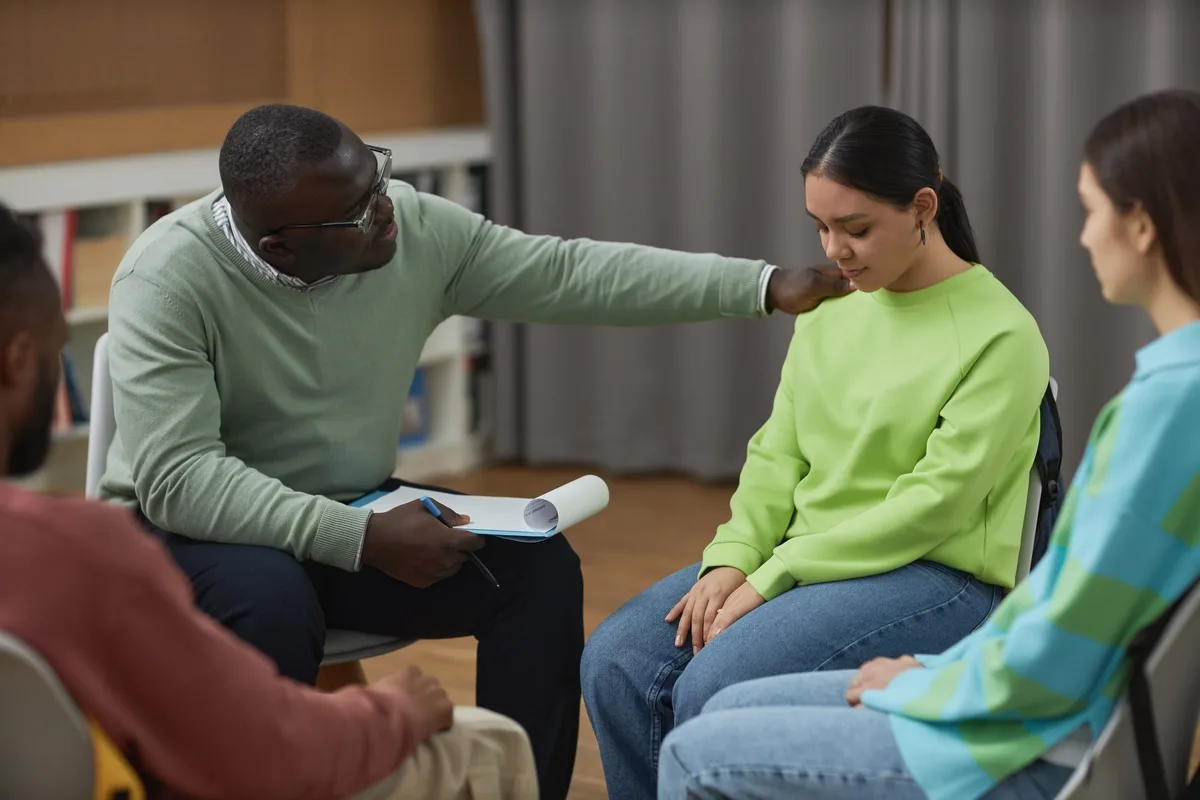24/7 Helpline:
(866) 899-221924/7 Helpline:
(866) 899-2219
Learn more about PTSD Treatment centers in Loyalhanna
PTSD Treatment in Other Cities

Other Insurance Options

Holman Group

Lucent

Access to Recovery (ATR) Voucher

Ambetter

CareFirst

Meritain

Choice Care Network

Magellan Health

GEHA

Covered California

Sliding scale payment assistance

AllWell

Private insurance

Medical Mutual of Ohio

PHCS Network

Aetna
Beacon

Horizon Healthcare Service

Regence

Optima














